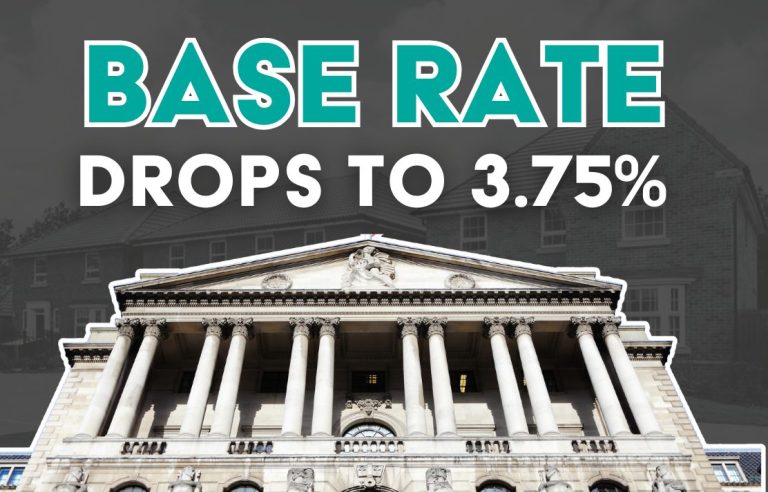If you’re starting your home-buying journey, you’ve likely come across the term Agreement in Principle, sometimes shortened to AIP, or known as a Mortgage in Principle. But what does it really mean, and why do you need one?
In this guide, we’ll break down exactly what an Agreement in Principle is, how it works, how to get one, and why it matters when buying a property in the UK.
What Does “Agreement in Principle” Mean?
An Agreement in Principle is a written estimate from a mortgage lender, confirming how much they might be willing to lend you based on some basic information. It’s not a full mortgage offer, but it shows that, on paper, you meet the lender’s initial criteria.
Think of it as a pre-approval. It helps you understand what you could borrow and shows sellers and estate agents that you’re a serious buyer.
Why Is an Agreement in Principle Important?
Here are some of the key benefits of getting a Mortgage Agreement in Principle:
Know Your Budget
An AIP gives you a realistic idea of your borrowing power, which helps you narrow your property search to homes within your price range.
Strengthen Your Offers
Estate agents and sellers take you more seriously when you’ve already obtained an AIP. In some competitive areas, it’s even a requirement before booking a viewing.
Spot Issues Early
An AIP highlights any issues that may affect your borrowing, such as credit score problems or affordability mismatches, giving you time to resolve them before a full application.
How Does an Agreement in Principle Work?
To get an AIP, the lender needs a snapshot of your financial situation. This typically includes:
- Your income and employment details
- Your monthly outgoings (e.g. debts, credit commitments, childcare)
- An overview of your credit history
- Basic property information (if known)
- Lenders will usually run a soft credit check, which won’t impact your credit score. Based on this, they’ll decide how much they’d potentially be willing to lend you
If successful, they’ll issue a certificate or email confirming your AIP amount, usually valid for 30 to 90 days.
What’s the Difference Between an Agreement in Principle and a Mortgage Offer?
Here’s how they differ:
| Agreement In Principle | Mortgage Offer |
| Based on basic info & soft credit check | Based on full application & hard credit check |
| No legal commitment | Legally binding offer |
| Helps with house hunting | Final stage before buying |
| Quick and easy to get | Takes longer, includes property valuation |
Remember, an AIP is not a guarantee. The lender can still decline your full mortgage application after further checks.
How Long Does an Agreement in Principle Last?
Most Agreements in Principle are valid for between 30 and 90 days, depending on the lender. If yours expires before you find a property, you can usually reapply or request an extension.
It’s important not to apply for too many AIPs in a short space of time, as repeated soft or hard credit checks may impact your creditworthiness.
Can You Be Refused an Agreement in Principle?
Yes. You might be turned down for an AIP if:
- You have a poor credit history
- Your income or debt-to-income ratio is too high
- You’re applying for more than the lender is comfortable lending
If this happens, don’t panic. It’s better to know early and explore your options with a mortgage broker, who can help match you to lenders with more flexible criteria.
Do You Need a Property to Get an Agreement in Principle?
No, you can get an AIP before finding a property. In fact, it’s a great idea to do so especially as it strengthens your hand when you do make an offer.
Once you’ve had an offer accepted on a home, you’ll move on to a full mortgage application, which involves more detailed checks and a valuation of the property.
How to Get an Agreement in Principle
There are two main routes:
1. Direct from a Lender
You can apply online through a bank or building society. This works well if you already have a preferred lender in mind.
2. Through a Mortgage Broker (like UKMC)
A broker will assess your financial situation and match you to suitable lenders. They’ll help you get your AIP with the best possible terms and explain any conditions attached.
Will Getting an AIP Affect My Credit Score?
Most AIPs involve a soft credit check, which does not leave a mark visible to other lenders. However, a few lenders may perform a hard search, which stays on your credit file for up to 12 months.
If you’re unsure, ask your broker or lender upfront before proceeding.
When Should I Get a Mortgage Agreement in Principle?
Ideally, get an AIP before you start seriously viewing homes. It shows you’re a committed buyer and speeds up the process when you find the right property.
If your circumstances change (e.g., a new job, large loan, or deposit changes), you may need to update your AIP.
At UK Mortgage Centre, we’re here to help you make informed decisions about your mortgage. Our experts can guide you through the process, ensuring you find the best solution tailored to your needs.
Call us on 01925 573328
Email: hello@ukmc.co.uk
Or book your own appointment to speak with one of our friendly advisers.
Let us assist you in making your next move a smooth and successful one.
Disclaimer
UK Mortgage Centre is a trading style of Refresh Mortgage Network Limited. Refresh Mortgage Network Limited is authorised and regulated by the Financial Conduct Authority. FRN – 826982. Registered in England & Wales: 11614569. As a mortgage is secured against your home, it could be repossessed if you do not keep up the mortgage repayments. The Financial Conduct Authority does not regulate some forms of buy-to-let mortgages. The Financial Conduct Authority does not regulate will writing and taxation and trust advice.







